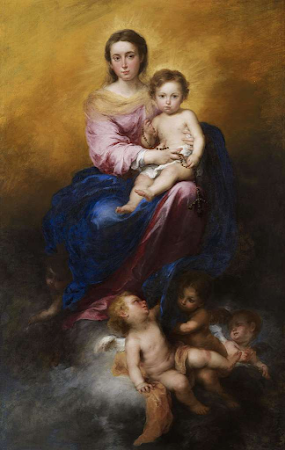+JMJ
"Look upon the hour of adoration assigned to you as an hour in paradise. Go to your adoration as one would to heaven, to the divine banquet. You will then long for that hour and hail it with joy. Take delight in fostering a longing for it in your heart. Tell yourself, "In four hours, in two hours, in one hour, our Lord will give me an audience of grace and love. He has invited me; he is waiting for me; he is longing for me." (St. Peter Julian Eymard)
In his book, Mother Teresa of Calcutta: A Personal Portrait, Fr. Leo Maasburg described the importance of prayer— specifically Adoration and Mass— for this saint of the gutters:
In 1972 when a catastrophic flood struck Bangladesh, Mother Teresa immediately sent her sisters there to help out. The needs were enormous, and the work demanded superhuman efforts on the part of the Sisters. So they were asked if they would make an exception and not interrupt their work for prayer sessions. Mother Teresa decided against it: 'No, the Sisters will come home for Adoration and Holy Mass'...for Mother Teresa it was clear that the Sisters' strength dries up if they are not nourished daily by Mass and their Adoration of the Holy Eucharist."
During this season of Advent, the faithful Christian hears the Gospel story of the Birth of Christ; its familiarity is comforting, its sameness is soothing. Listening to the Nativity story may bring back childhood memories, or evoke picturesque scenes. It is easy to imagine oneself as the shepherd who would run in haste to meet his King just as he might imagine himself as one of the few standing by the cross.
But perhaps, a more likely scenario for the modern man is the role of the innkeeper who said,"there is no room." For why should one expect that he would make room to welcome the Savior to Bethlehem when he does not make room in his day for the same Lord? Instead of clearing the way so that he can spend time with His King, he clutters his path with excuse upon excuse.
Many are blessed to be near churches with Adoration of the Blessed Sacrament, but many neglect to take advantage of this gift. And why? Because in a culture where plans can be changed last minute, and distractions are ever at one's fingertips, committing to time in Adoration takes effort and sacrifice. Saying yes to the invitation from Our Lord necessitates saying no to other demands upon one's time. It is the difference between just trying to simply squeeze in Our Lord somewhere, and the day revolving around the time with Him. Even if the former works, it is as if one is saying to Jesus,"I think I can find time for you on my schedule." But in the latter, he says,"Nothing is more important than you, my Jesus, and I will do everything in my power to be with you this day."











